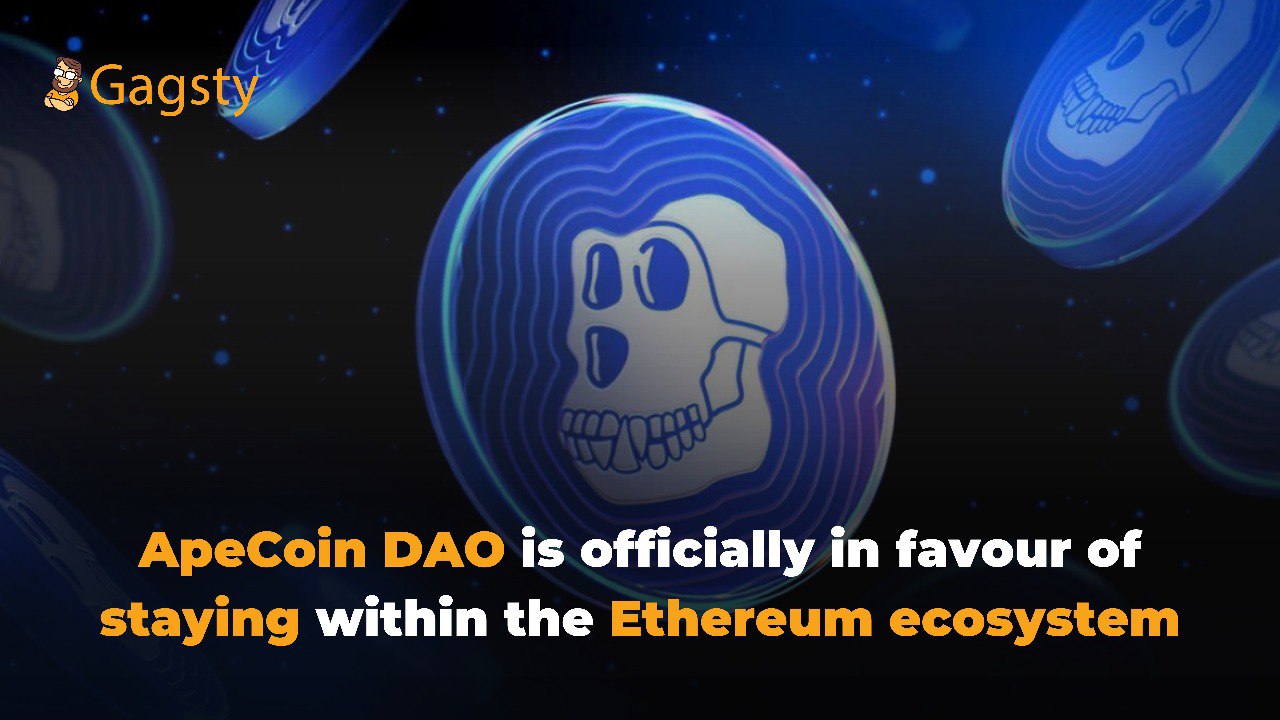
After a six-day snapshot voting period, the final results briefly revealed that a total of 7.1 million APE tokens were cast, with 53.62% of ApeCoin participants staying on Ethereum for the mid-term future.
ApeCoin DAO, a governing body that serves the democratic rights of ApeCoin holders – a digital asset linked to the Board Ape Yacht Club ecosystem – released an official proposal on May 2 to discuss whether the assets should be in Ethereum, a Layer-2 alternative, or perhaps explore the possibility of chain migration.
The “AIP-41: Keep ApeCoin within the Ethereum ecosystem,” an ApeCoin improvement proposal (AIP) was written by BAYC 2491, known as ASEC, and was inspired by several events, including the turbulent Adardid Mint and the subsequent Labs response.
The catastrophic results of Yuga Labs’ Otherdeeds metaverse land sale have thoroughly examined the financial constraints of Ethereum’s gas fee mechanics and expressed their concern to leading members of the ApeCoin community about the specific supply agreement and scalability potential of ApeCoin.
The irresistible inflation of the gas war, and the lack of financial inclusion or integrity, was further complicated by the then-poorly-calculated tweet from Yuga Labs “it seems abundantly clear that ApeCoin will need to migrate to its own chain to properly scale” and that “we’d like to encourage the DAO to start thinking in this direction.”
Despite advice from Juga Labs, AIP-41 has vigorously advocated against migration from Ethereum, saying that “such a decision is currently too complex and costly to make”, and with the NFT’s greatest volume and cultural acceptance, it could potentially damage their deep-rooted presence in the network.
“We the ApeCoin DAO believe that, at least for the time being, ApeCoin should remain within the Ethereum ecosystem and not migrate elsewhere to an L1 chain or sidechain not secured by Ethereum.”
The proposal equals a total of 3.8 million votes and 3.3 million against – a 53.62% split. These results are not entirely definitive and can be further discussed by submitting new proposals within an additional period of three months.
Leave a Reply